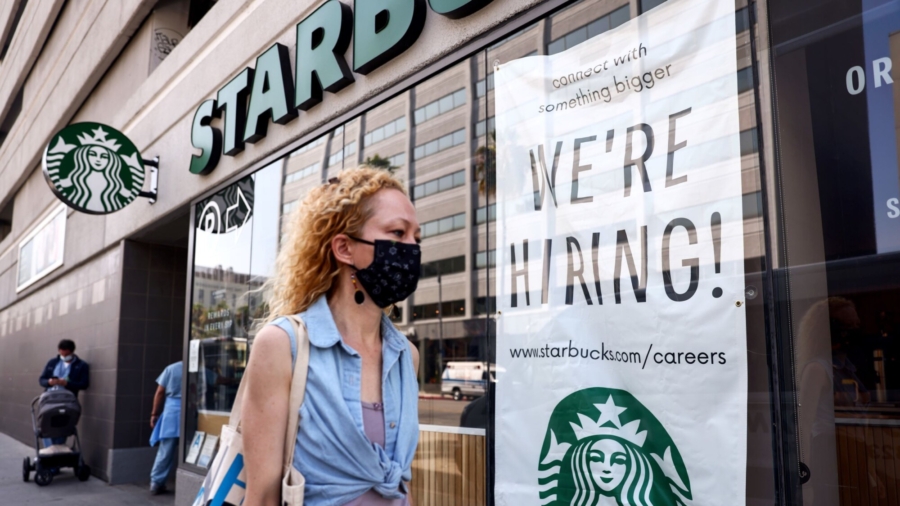Consumer prices rose in July at their slowest monthly pace since February, though a broadening of price pressures suggests inflation may be more persistent than Federal Reserve officials predict, offering little relief to American households rocked by months of surging prices.
The Labor Department said in a report Wednesday that the consumer price index (CPI) jumped 0.5 percent from June to July, down from the previous monthly increase of 0.9 percent.
Over-the-year consumer price inflation stood at 5.4 percent in July, matching the June figure, which was the highest 12-month spike since 2008.
So-called core inflation, which excludes the volatile categories of food and energy, rose 0.3 percent from June to July, after surging 0.9 percent from May to June. Core inflation for the 12 months ending in July rose 4.3 percent, down from 4.5 percent in June.
But while the apparent peak in the annual rate of price increases boosts the narrative of “transitory” inflation that could now start to fade, a broadening out of price pressures suggests higher inflation might stick around for longer. While used car prices have stabilized, rising 0.2 percent over the month in July after surging by 10.5 percent between May and June, monthly inflation accelerated in categories like recreation, personal services, and medical care.
“The annual rate of inflation has seemingly peaked, but the details show a broadening out of price pressures,” wrote ING Chief International Economist James Knightley, in a note. “This indicates inflation is likely to be more persistent and pervasive than predicted by the Federal Reserve.”
In their most recent summary of economic conditions, Fed officials indicated they expect core consumer price inflation to range from an annual 2.7 percent to 3.3 percent in 2021, dropping to between 1.7 percent and 2.5 percent in 2022, before rising to between 2.0 percent and 2.3 percent in 2023.
Federal Reserve Vice Chair Richard Clarida, the Fed’s second-in-command, said in a recent webcast discussion hosted by the Peterson Institute for International Economics that he expects the Fed’s preferred inflation gauge, the so-called core personal consumption expenditures (PCE) price index, to surge to at least 3 percent this year before falling back to 2.1 percent for the next two years.
At the same time, Clarida acknowledged that inflation might end up running hotter and for longer than anticipated.
“I believe that the risks to my outlook for inflation are to the upside,” Clarida said.
Meanwhile, medium-term inflation expectations among American consumers rose to an eight-year high in July, according to a survey released on Monday by the New York Federal Reserve.
Consumers’ expectations for what inflation will be at the three-year horizon increased from a median 3.6 percent in June to 3.7 percent in July, the highest level since August 2013, according to the survey.
“With consumer inflation expectations also on the rise the case for earlier policy stimulus withdrawal is building,” Knightley wrote in the note, referring to the extraordinary support measures deployed by the Fed to help revive the economy from its pandemic lows.
Last year, the Fed cut its benchmark overnight interest rate to near zero and began buying $120 billion in Treasuries and mortgage-backed securities each month to bolster the economy.
While Fed policymakers are discussing how and when to begin dialing back the crisis-era measures, they have made a jobs market recovery a condition of tighter monetary policy.
While economic output has fully bounced back to its pre-pandemic levels, the labor market recovery is trailing. The U.S. economy remains around 5 million jobs down from before the outbreak. After shedding over 22 million jobs in the first two months of the pandemic, the U.S. economy has since recovered nearly 17 million jobs.
Inflation has emerged as a potential political liability for President Joe Biden, with congressional Republicans blaming his policies for fueling the price surge.
The White House has insisted inflation is temporary, arguing that it mainly stems from supply shortages associated with the sudden shutdown and swift reopening of the economy.
From The Epoch Times


